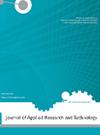A Semantic Framework based on Domain Knowledge for Opinion Mining of Drug Reviews
Q3 Engineering
Journal of Applied Research and Technology
Pub Date : 2022-12-23
DOI:10.22201/icat.24486736e.2022.20.6.868
引用次数: 0
Abstract
Opinion mining has been attracting increasing attention in recent years. Existing approaches to opinion mining that have worked on general domains face two major challenges for polarity classification of drug reviews. Firstly, indirect opinions frequently occur in the drug domain, while the existing methods have mainly focused on direct opinions and ignored the indirect ones. Secondly, previous works are not sufficient for polarity classification of ambiguous concepts in the drug domain. This paper proposed a semantic framework based on domain knowledge for resource construction and exploitation for indirect opinion mining of drug reviews. Accordingly, some methods were introduced, developed, and compared for building and exploiting a combined knowledge base, polarity-tagged corpus, and context-aware resources for the polarity detection of drug reviews. The test results showed that the proposed methods reached a precision of 89.18% and 80.4% in the application of the combined knowledge base and the polarity-tagged corpus for polarity detection of indirect opinions, respectively. Also, a precision of 79.93% was achieved with the use of context-aware resources constructed for the polarity detection of ambiguous concepts. Overall, the results obtained demonstrated the performance of the proposed methods compared to the existing methods.基于领域知识的药品评论意见挖掘语义框架
近年来,舆论挖掘越来越受到人们的关注。现有的针对一般领域的意见挖掘方法在药物评论极性分类方面面临两个主要挑战。首先,间接意见在药品领域频繁出现,而现有的方法主要关注直接意见而忽略了间接意见。其次,以往的工作不足以对药物领域的歧义概念进行极性分类。提出了一种基于领域知识的语义框架,用于药物评论间接意见挖掘的资源构建和开发。因此,本文介绍、开发并比较了一些方法,用于构建和利用组合知识库、极性标记语料库和上下文感知资源来进行药物评论极性检测。实验结果表明,本文提出的方法在使用组合知识库和极性标记语料库进行间接意见极性检测时,准确率分别达到89.18%和80.4%。此外,利用构建的上下文感知资源对歧义概念的极性进行检测,准确率达到79.93%。总体而言,与现有方法相比,所获得的结果证明了所提出方法的性能。
本文章由计算机程序翻译,如有差异,请以英文原文为准。
求助全文
约1分钟内获得全文
求助全文
来源期刊

Journal of Applied Research and Technology
工程技术-工程:电子与电气
CiteScore
1.50
自引率
0.00%
发文量
0
审稿时长
6-12 weeks
期刊介绍:
The Journal of Applied Research and Technology (JART) is a bimonthly open access journal that publishes papers on innovative applications, development of new technologies and efficient solutions in engineering, computing and scientific research. JART publishes manuscripts describing original research, with significant results based on experimental, theoretical and numerical work.
The journal does not charge for submission, processing, publication of manuscripts or for color reproduction of photographs.
JART classifies research into the following main fields:
-Material Science:
Biomaterials, carbon, ceramics, composite, metals, polymers, thin films, functional materials and semiconductors.
-Computer Science:
Computer graphics and visualization, programming, human-computer interaction, neural networks, image processing and software engineering.
-Industrial Engineering:
Operations research, systems engineering, management science, complex systems and cybernetics applications and information technologies
-Electronic Engineering:
Solid-state physics, radio engineering, telecommunications, control systems, signal processing, power electronics, electronic devices and circuits and automation.
-Instrumentation engineering and science:
Measurement devices (pressure, temperature, flow, voltage, frequency etc.), precision engineering, medical devices, instrumentation for education (devices and software), sensor technology, mechatronics and robotics.
 求助内容:
求助内容: 应助结果提醒方式:
应助结果提醒方式:


